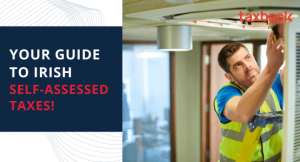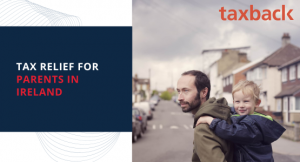Essential Tax Tips for 13 Countries
New streets, fresh faces and exciting challenges; working in a new country has many fun prospects, the least exciting of which is probably your tax obligations
However being prepared when it comes to paying your taxes can really pay off, especially when it comes to home time and tax refunds.
Here are our top tax tips for 13 popular working holiday destinations.
Australia

You can work up to 6 months for each employer on your working holiday in Oz and as a non-resident you’ll be taxed at 32.5%. You’ll need to apply for a TFN (tax file number) before you start your first job and you can get one before you go.
Residency
If you stay for 183 days or more you’ll typically be considered a resident for tax purposes and qualify for the tax-free threshold.
Read the blog post: Controversial backpacker tax slashed
Superannuation
Regardless of how much you earn, your employer will pay 11% of your wages into a superannuation fund. This fund is for Australians when they retire but unless you want to retire in Australia, you can claim a superannuation refund when you leave and your visa has expired!
Read the blog post: Your Guide to Superannuation
Apply for Your Superannuation Refund
To claim your Oz tax back you’ll need:
- Final payslips
- TFN (tax file number or ABN if you had one)
- Copy of Your ID
Tax Facts:
- Oz tax year ends on 30 June - you are required to file your Australian tax return between 1 July and 31 October!
- You can claim your superannuation when you leave and your visa expires
- Apply for your super here
- The average tax return in Australia is $2,600 so it's worth checking if you are due a refund!
- You can use our tax return calculator for free to find out if you are due tax back!
Belgium

You should register at the local municipal administration office/town hall (maison communale/gemeentehuis) within eight working days if you plan on staying three months or more.
Taxes
Taxes in Belgium are at a rate of more than 50% for the highest earners. If you stay for at least six months during the tax year and register with your local commune, you will be considered a resident and be taxed on your worldwide income. However, if you stay for less than six months, you’ll be considered non-resident and taxed on your Belgian-sourced income only.
Use our Belgian tax calculator to check if you are due a tax refund!
Filing your tax return
You should receive a tax return in May–June (déclaration/aangifte) for the previous year’s income.
For residents, this is usually filed at the end of June and for non-residents, you should file your tax return in Belgium in September/October.
You could get a tax refund from Belgium if:
- You only worked part of the year
- Your income was under the tax-free allowance
- Your Belgian income was more than 75% of your worldwide income
To claim your Belgium tax refund you’ll need:
- Loonfiche 281.10/ Fiche de Remuneration 281.10 (from your employer)
- Copy of ID
Tax facts:
- Tax year: Jan 1 to December 31
- Use our Belgium tax calculator to estimate your tax refund due
Canada

If you want to work here, you should apply for a Social Insurance Number (SIN) so your employer can tax you correctly.
You can also apply for one here before you go.
How much tax you pay depends on your residency status but you’ll probably pay 15%-33% income tax on your wages. Working holidaymakers are typically deemed non-resident and are only taxed on Canadian income.
Read the blog post: Living in Canada Determining your residency status
To claim your tax back you’ll need:
- T4 (statement of remuneration) or final cumulative payslip
- SIN
- Copy of ID
File your Canadian Tax Return easily online
Tax facts:
- Tax year is Jan 1-Dec 31
- 10 years to apply for a tax refund
- Get an estimate with the Canadian tax refund calculator
Denmark

You should apply for a civil registration number if you intend to stay three months or longer (six months for EU/EEA/Swiss citizens) at the Danish National Register.
If you are not a resident of Denmark but earn income there, you may be subject to limited tax liability. If you stay for six months or more, you will most likely be liable to pay tax on income from Denmark and your worldwide income, with exceptions being students and tourists. However, Denmark has a number of double taxation agreements with other countries so you should find out if any of these apply to you.
Tax rates
The tax rates in Denmark are based on categories of income and each category has a different tax rate but no one pays more than 33% in national municipal taxes in total.
You could be due a tax refund from Denmark if:
- You were on a limited-term contract
- You paid for food and accommodation
- You kept your residence in your home country while working in Denmark
To claim your tax back you’ll need:
- Your Årsopgørelse (from the tax office)
- Your ID
Tax facts:
- Tax year: Jan 1 to Dec 31
- Get a refund estimate using the Danish tax refund calculator.
Germany

You should apply for a Tax Identification Number (Identifikationsnummer) to work here. When you arrive, you need to register your address at the local registration office in your city hall or town. You’ll need your passport, visa, and a copy of the lease or rental agreement. The federal tax authority will send out your Tax ID within 2-3 weeks.
Taxes
Employees in Germany pay up to 42.5% income tax on their earnings. German taxpayers pay income tax on their German income only but their progressive tax rates take into account worldwide income and assets. In addition to income tax, the ‘solidarity surcharge’ (Solidaritätszuschlag) is levied at a rate of 5.5%.
You may be due a German tax refund if:
- Your income was under the tax-free allowance
- You worked part of the year
- You paid rent in Germany and your home country
- You paid for flights to or from Germany
- You had work expenses
- Your spouse was living in EU-home country at the time
To claim your tax back you’ll need:
- Your Lohnsteuerbescheinigung (official government form from your employer)
- Copy of ID
- Steueridentificationsnummer (a tax identification number) if you have one
Tax facts:
- Tax filing deadline is May 31 of the following year (extended to Dec 31 if prepared by a tax professional).
- You can file your return 4 years back
- Get your free German tax refund estimation.
Ireland

You should apply for a PPS number (Personal Public Service Number) and fill in Form 12A when you arrive. Then send this to Revenue (the tax authority) so you can get a tax credit certificate before you start working.
You can then give this to your employer to ensure you avoid paying emergency tax.
Taxes
Three factors determine your liability for tax: Residency, ordinary residency and domicile status. Tax is charged as a percentage of your income so what you pay depends on your earnings. Up to a certain amount is taxed at the standard rate of 20%. Anything above this amount is chargeable at the higher rate of tax at 40%.
You are a resident if:
- You stay 183 days or more in a tax year
- You’re present for 280 days or more in that tax year plus the previous tax year taken together with a minimum of 30 days in each year
If you’re a resident and domicile in a tax year, you’ll be taxed on your worldwide income. For any year that you are non-resident and non-ordinarily resident, you’ll only get taxed on your Irish-sourced income.
Double taxation agreements
You might be able to avoid paying tax on your income in Ireland or abroad if Ireland has a double taxation treaty with your home country.
A tax treaty will allow you:
- To exempt the income from tax in one country or
- Allow credit in one country for tax paid in the other
You may be due an Irish tax refund if you:
- Worked part of the year
- Changed employment
- Were made redundant
- Had qualifying medical/dental expenses
To claim a refund you’ll need:
- P60 from employer
- PPS Number
- Copy of your ID
Get Your Irish Tax Refund Now!
Tax facts:
- You can go back 4 years for a tax refund
- Self-assessed tax return deadline is October 31
- Refund estimate using the Irish online tax refund calculator
Japan

When you work in Japan, you’ll pay between 10% - 40% income tax, depending on what you earn. Japanese nationals and foreign residents who’ve registered with a local municipality are given a 12-digit number for tax purposes. If you live in Japan for one year or more you’ll be considered a resident. In this case, your worldwide income is subject to tax. However, if you only stay for a short while, you are non-domicile and only liable for Japanese-sourced income.
Pension fund
It’s likely that you’ll end up paying into a pension fund if you work in Japan. Luckily you can apply for a Japan pension refund when you leave the country! You have two years to claim it.
The Japanese Insurance Agency will take 20% in tax off your pension refund.
To claim your tax back you’ll need:
- Your Gensen-Choshu-Hyo (a statement of income and tax paid from your employer)
- Official ID
- Copy of your pension book or pension number
Tax facts:
- Tax year: Jan 1-Dec 31
- File your tax return from Feb 16-March 15
- You can get a refund estimate with the Japanese tax refund calculator
Luxembourg

If you stay more than three months, you must register at the municipal administration in your area of residence. Luxembourg has one of the lowest income tax rates in Europe and depending on your salary, you’ll be taxed between 0%-42% on your income. Employees get a tax card each year stating their tax classes based on their personal status. Residents are taxed on worldwide income but non-residents are only taxed on their Luxembourg-sourced income.
Use our Luxembourg tax calculator to find out if you are due taxes back in Luxembourg.
You are considered a resident for tax purposes if:
- You’re fiscally domiciled in Luxembourg and
- Resident in Luxembourg for more than nine months per year
You could be due a tax refund in Luxembourg if:
- You had a part-time or temporary job
- You had more than one employer
- You worked more than nine months
- Your income was under the tax-free allowance
- Your income was more than 75% of your annual worldwide income
You must complete a tax declaration in Luxembourg in order to claim back your tax refund.
To claim your tax back and file your Luxembourg tax return you’ll need:
- Certificat de Remuneration/Certificat de Salaire ou de Pension
- Copy of ID
Get Tax Refund From Luxembourg Now!
Tax facts:
- Tax year: Jan 1 to Dec 31
- Claim your Luxembourg tax back here
Netherlands

When you arrive, you should apply for a Citizen Service Number (burgerservicenummer or BSN) when you register at your local city or town hall. Employees pay up to 49.5% tax on their earnings. The amount you pay depends mostly on how much you earn. The tax rates are the same for residents and non-residents but there are differences in entitlement to deductions, allowances and tax credits.
Use our Dutch tax return calculator to find out if you are owed a Dutch tax refund.
Tax deductions
As of 2015, you are entitled to deductible items, tax credits and the tax-free allowance only if you meet all three of the following:
- You live in an EU country, Liechtenstein, Bonaire, Sint Eustatius or Saba, Norway, Iceland, Switzerland
- You pay tax in the Netherlands on at least 90% of your worldwide income
- You can submit a personal income statement from the tax authorities in your country of residence
You may be due a Dutch Tax Refund if:
- You work part of the year
- You had another job
- You were granted the 30% ruling (you got a tax-free expense allowance of up to 30% of your salary from your employer)
To claim your tax back from the Netherlands you’ll need:
- Jaaropgaaf or Statement of Earnings
- A copy of your ID
Apply for Tax Refund from Netherlands Now!
Tax facts:
- Tax year: 1 Jan to Dec 31
- Get your Dutch tax refund estimate
Claim your tax refund in The Netherlands now!
New Zealand

The birthplace of commercial bungee jumping is also renowned for its stunning scenery and outdoor sports. It’s no wonder many working holidaymakers choose it over Australia.
If you want to work here, you should apply for an IRD number so your employer will tax you correctly. Without one, your income will be taxed at the highest rate.
Once you find a job, your employer will give you a Tax code declaration (IR330) form to fill in so they know how much tax to deduct from your wages.
What you’ll pay
You’ll probably pay between 10.5% and 39% tax on your income. One of the biggest factors affecting what you’ll pay is your residency status.
You’ll be considered non-resident for tax purposes if you stay for 183 days or less in any 12-month period. Non-residents are only taxed on their New Zealand sourced income.
However, if you remain in the country for more than 183 days you’ll become a tax resident from the date you arrived and be taxed on your worldwide income.
Fortunately, New Zealand has a number of tax treaties in place to help residents of certain countries avoid double taxation, so you should find out if any apply to you when filing your tax return.
To claim your tax back from New Zealand you’ll need:
- Summary of earnings or final payslip
- A copy of your ID
- IRD number
Get Your New Zealand Tax Refund!
Calculate the tax refund you're due from NZ today with our FREE calculator!
Tax Facts:
- Tax year: April 1 – March 31
- You can go back as far as four years for tax refunds
- There is no payroll, healthcare, capital gains, social security, inheritance or state/local taxes
- You can get a refund estimate with the New Zealand tax calculator.
Our team of tax experts can help you to calculate your tax refund for NZ.
UK

You should apply for a National Insurance Number (NIN) when you arrive. This will ensure you are taxed correctly.
Taxes in the UK
If you stay in the UK for 183 days or more in a tax year, you are generally considered a resident. The ‘’Statutory ‘Residence Test’’ can also help you determine this.
Non-residents only pay tax on UK-sourced income. Residents pay UK tax on their worldwide income. However, the UK has double taxation agreements with a number of countries to prevent foreign workers from being taxed twice.
You can earn up to £12,570 without paying tax. This is known as the standard UK Personal Allowance for non-residents.
Taxback can help you file your return and claim your PAYE tax refund.
You may be due a UK tax refund if:
- You arrive in the middle of the tax year
- You leave before the end of the tax year
- You had more than one job
To claim your tax back you’ll need:
- Documents (P45, P60, P11D)
- Your ID
Tax facts:
- Tax year: April 6 – April 5 of the following year
- Free refund estimate with the UK tax rebate calculator.
Read the blog post: Your Guide to UK PAYE Tax
United States

When you arrive, you should apply for a Social Security Number or Individual Taxpayer identification Number so you can be taxed correctly. You can also apply for one online here.
If you’re on a working and travel programme in the US, you’ll typically be considered a non-resident alien and pay tax only on US sourced income. This income is subject to federal taxes and in many cases, state taxes.
Therefore, you must file a tax return by April 15 of the following year.
To claim your tax back you’ll need:
- Final cumulative payslip or W2 Form/1042-S
- Social security number/ITIN
W2 form: A form from your employer stating your total earnings and amount of tax deducted (usually issued in February).
1042-S form: Students, teachers or trainees on a J or F visa get this instead of a W2. It outlines the scholarships, fellowships or grants and tax treaties.
Tax facts:
- Tax year: Jan 1-December 31
- Non-resident aliens should file Form 1040NR
- You must claim your tax back within 3 years
- Get an estimate using the J1 online tax refund calculator
Claiming your tax back
If you want to claim tax back from any of these 13 countries you can do so by emailing us at info@taxback.com or by visiting the corresponding country page!
We offer free no-obligation refund estimates, then you can decide if you want to apply or not.
Any questions? Let us know below!




